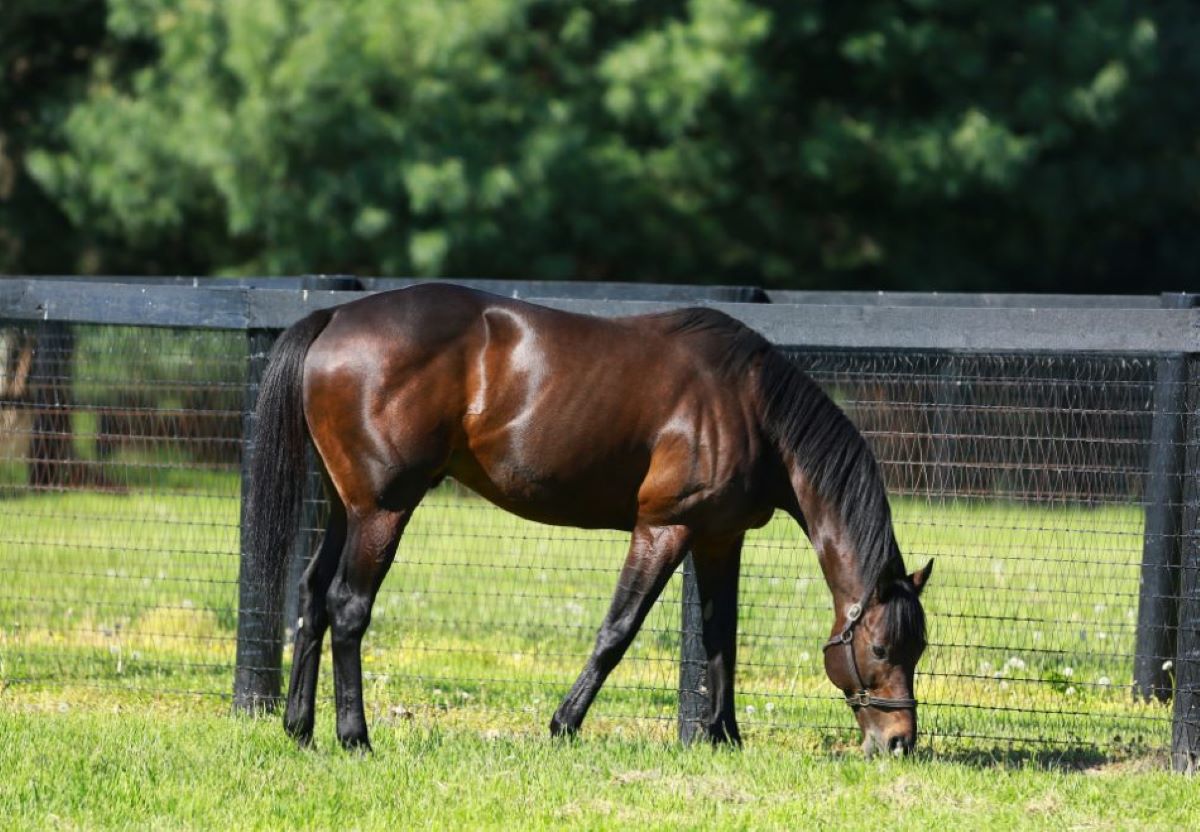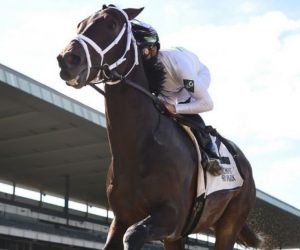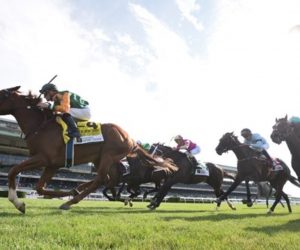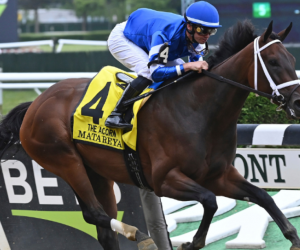Three of Kentucky’s most powerful breeding farms filed suit in US District Court on Tuesday, seeking to end The Jockey Club’s stallion cap rule that limits stallions born in 2020 or later to 140 mares a year.

The plaintiffs, Spendthrift Farm, Ashford Stud, and Three Chimneys Farm, also listed two Kentucky Horse Racing Commission (KHRC) officials as defendants — KHRC Chairman Jonathan Rabinowitz and Executive Director Marc Guilfoil. Neither played an active role in The Jockey Club’s cap decision, but the suit encompasses them for their roles delegating Thoroughbred registration authority in Kentucky to The Jockey Club.
Only Thoroughbreds registered by The Jockey Club may run pari-mutuel races in most states, including in Kentucky. That forms one key element of the breeders’ complaint: that they would be forbidden from racing any foals beyond the 140 limit. And that prohibition goes beyond the US because The Jockey Club is North America’s representative in the International Stud Book Committee.
The ISBC recognizes 69 stud books worldwide. It has an agreement that only horses recognized as Thoroughbreds will be listed in member stud books. Any foals beyond the 140 cap would not be considered Thoroughbreds.
Any stallion born now needs to arrive early
For any stallion born in 2020 or later, The Jockey Club will not register any foals outside of a stallion’s first 140 in a given year. No other country imposes stallion caps. Because of that, the breeders maintain The Jockey Club’s limit is arbitrary and anti-competitive.
“The introduction of the stallion cap by The Jockey Club is a blatant abuse of power that is bad law, bad science, and bad business,†said B. Wayne Hughes, the owner of Spendthrift Farm in a press release. “A handful of individuals from a private club in New York have been allowed to make a decision that will negatively impact the future of Thoroughbred racing and breeding both in Kentucky and the whole country.â€
The Jockey Club passed a revised Rule 14C last spring, establishing that 140-foal limit per stallion, per year. It enacted that because the organization needed “to preserve the health of the Thoroughbred breed for the long term.†The club’s goal, it says, is to curb rampant inbreeding that makes Thoroughbreds more fragile, and to preserve the health of the Thoroughbred breed for the long term.
The Jockey Club holding firm on stallion cap
The Jockey Club issued a statement Tuesday reiterating its defense of the stallion cap.
“In May 2020, The Jockey Club board of stewards announced that it had adopted a final rule limiting the annual breeding of individual stallions. The rule reflects The Jockey Club’s goal to preserve the health of the Thoroughbred breed for the long term. The rule applies prospectively to stallions foaled in 2020 or later; it does not apply to stallions already out to stud. The Jockey Club publicly proposed a draft rule in September 2019 and received many thoughtful comments, which the stewards carefully considered in formulating a rule that will promote diversity of the Thoroughbred gene pool and protect the long-term health of the breed. Because the rule applies only to stallions born in 2020 or later, any effect on future stud fees or breeding economics is speculative.â€
Hughes, the founder and chairman of Public Storage, isn’t having it. Nor is he buying a study in the 2011 edition of the scientific journal, Animal Genetics cited by The Jockey Club as a reason for a stallion cap. That study illustrated a significant increase in Thoroughbred inbreeding over a 10-year period (1996-2006). That came after the number of stallions covering (mating with) 100 or more mares jumped from 14 to 128.
‘Anti-competitive, un-American, and arbitrary…’
“We have filed this complaint to defend the industry from anti-competitive, un-American, and arbitrary decision-making that is not based on scientific evidence,†Hughes said. “If they can limit the number to 140, what’s to stop them from limiting it to 100 or 80 or any other number down the road? What if your mare isn’t one of the 140? We are really concerned about the small breeder’s ability to survive this.â€
Putting aside Hughes’ net worth, estimated at $3.1 billion, Spendthrift is anything but a small breeder. In The Jockey Club’s Report of Mares Bred, 42 stallions covered more than 140 mares in 2020. Sixteen of the 42 stood at one of the three farms. And the 16 bred 1,088 mares over the 140-mare limit. Of that 1,088, Spendthrift stallions accounted for 53% of the overage – 576.
Spendthrift, of course, is home to the hottest stallion in the world, Into Mischief. He covered 248 mares last year, meaning he was responsible for 108 of Spendthrift’s 576 overage. Spendthrift’s stable includes his son, reigning Kentucky Derby and Breeders’ Cup Classic winner, Authentic. The powerful stable also includes Malibu Moon, Vino Rosso, Goldencents, Omaha Beach, Vekoma, and Mitole, among others.
Coolmore-Ashford home to two Triple Crown owners
Coolmore-Ashford, which produced nearly 40% of the 2020 overage (429), is home to the last two Triple Crown Champions, American Pharoah (153 mares in 2020), and Justify (222). Standout sire Uncle Mo is also there, accounting for 257 mares in 2020 –117 over the 140 threshold. Joining the farm this year are newcomers Tiz the Law, Maximum Security, and Echo Town.
The breeders’ civil suit seeks plenty, including unspecified compensatory and punitive damages against The Jockey Club. Because of anti-trust charges, the breeders are asking for treble damages, under the Clayton Antitrust Act. The suit claims Rule 14C violates the Sherman Antitrust Act, and that it violates due process and equal protection rights under both Kentucky law and the US Constitution.
Along with those claims, the suit also asks for The Jockey Club to repeal Rule 14C, or – at the least – for enforcement of Rule 14C to be prohibited.











